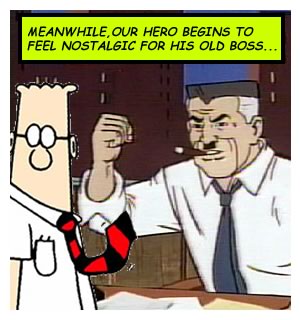
Although it may not seem obvious at first, publishing and nerds go hand in hand. Think back to college or even high school, where no yearbook or newspaper staff was complete without its nerds.
George and I did a lot of bonding on Sunday nights at Crazy Go Nuts University’s humor paper, Golden Words, where we took on every task, from brainstorming to writing to editing to typesetting to cartooning to graphic design (and I’ll give George bonus marks for also doing photography). Since it was a paper run by the school’s engineering society, we weren’t the only nerds there; we were two of many who had some kind of affinity for tech. I believe that if neither George nor I had the knack or interest in computers — or perhaps if we’d been born decades earlier, we’d have gone into journalism or publishing.
Working for a college paper in the late 1980s, we saw the transition from traditional layout (when cutting and pasting involved using actual knives and wax or rubber cement) to the introduction of newfangled things we take for granted today: desktop publishing software, laser printers and bitching about how much better it would be if we used Macs instead of PCs. Suddenly having a knack for working with computers was a much sought-after skill in the newsrooms.
Between the old school nerd-newspaper connection and the way “publishing” is increasingly moving away from paper and towards bits (see this entry in O’Reilly Radar where Tim explains why they’re having a publishing conference in Silicon Valley rather than New York), it’s no wonder that my reaction to this article on PBS’ MediaShift site — Web Focus Leads Newspapers to Hire Programmers for Editorial Staff — was “Well, it’s about time!” rather than “Huh?”
The article covers a number of people who mash up newspaper work with software development:
- Adrian Holovaty, creator of the Python-based Django framework, “the web framework for perfectionists with deadlines”, and ChicagoCrime.org, a mash-up that cross-references the city’s crime blotter with Google Maps to provide a map of where crimes took place.
- Aaron Ritchey, who functions as a “news programmer” at Tacoma’s News-Tribune, where he’s put together all manner of applications such as map mash-ups, survey generators, article formatters and reader-searchable databases.
- Jacob Kaplan-Moss of the Lawrence Journal-World, who says “If you find the right newspaper, working for a newsroom can be far better than working for any dot-com. My job is hands-down the best job I’ve ever had, in no small part because newspapers need us for their very survival. Most news organizations, although slow to adapt and late to the party, are finally realizing just how compelling web-based journalism can be, and they’re creating positions for us faster than we can fill ‘em.”
Also covered in the article are such topics as:
- Computer-assisted reporting
- Concerns programmers taking over journalists’ jobs
- What journalism school can do to prepare students for the journalism world to come
- Getting the techies working for newspapers out of the IT ghetto and into the newsroom
- Motivating newsrooms to hire programmers
As for why a programmer would want to take a job at a paper rather than a tech company, especially when the pay scales at tech companies tend to be better, Aaron Ritchey has a good answer:
At the News Tribune, I am the programmer. If I were working at a company that hires dozens of programmers, I would be just a programmer. I enjoy the extra responsibility of being the planner, the developer, and the tester.
It sounds like the reason I took my first job at a CD-ROM multimedia company, where I was a computer science grad surrounded by people who went to art school.